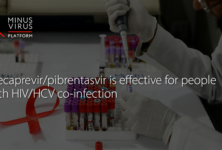Initiating, rather than deferring, antiretroviral therapy (ART) reduces the risk of severe bacterial infections in HIV-positive individuals with high CD4 counts, researchers say.
Their data are from the START trial, which showed a 57% reduction in the risk of AIDS and non-AIDS morbidity and mortality in participants with CD4 cell counts >500/uL who received ART immediately upon receiving an HIV diagnosis, rather than deferring treatment.
For the current study, Dr. Andrew Phillips of University College London Royal Free Campus, UK and colleagues assessed time from HIV diagnosis to a severe bacterial infection (pneumonia, pulmonary or extrapulmonary tuberculosis or another serious bacterial infectious disorder) that led to an unscheduled hospital admission or death.
Participants enrolled in the study from 2009 to 2013 and were followed for a median 2.8 years. Data were analyzed in 2015.
As reported online January 4 in Lancet HIV, 120 individuals (out of the original 4,685 trial participants) had severe bacterial infections: 34 in the “immediate” group and 86 in the “deferred” group.
Compared with delayed ART, immediate ART was associated with a reduced risk of severe bacterial infection (hazard ratio, 0.39). The average neutrophil count during follow-up was 321 cells/uL higher, and the average CD4 cell count was 194/uL higher, with immediate ART (p<0.0001).
Further analyses showed that a higher time-updated CD4 cell count was associated with a reduced risk of severe bacterial infection (HR 0.78, p=0.0001), whereas a time-updated neutrophil count was not associated with severe bacterial infection.
After adjustment for time-updated factors, particularly the CD4 cell count, the HR for the immediate group moved closer to 1 (HR 0.84, p=0.52). Results were similar when subgroups of severe bacterial infection were analyzed separately (for example, six individuals in the immediate group had pulmonary tuberculosis versus 17 in the deferred group; one in the immediate group had cellulitis versus four in the deferred group).
Summing up, Dr. Phillips told Reuters Health, “These newly published findings from the START trial show that ART has a protective effect in reducing the risk of severe bacterial infections, including infections that are not AIDS-defining, and even in people with high CD4 cell counts.”
“This is in agreement with the Temprano trial results (http://bit.ly/2iXSCG6) and emphasizes just how wide are the health benefits of early diagnosis and ART initiation in people with HIV,” he said by email. “It is important that people follow widely available online advice on HIV testing,” he added.
Dr. Mark Cayabyab of the Department of Immunology and Infectious Diseases at Forsyth Institute in Cambridge, Massachusetts told Reuters Health by email, “The START study clearly shows that immediate treatment of HIV-infected patients with ART reduces the risk of potentially deadly bacterial infections, including tuberculosis, (and) that immediate treatment with ART benefits HIV patients with high CD4 counts.”
Dr. Cayabyab concluded, “Results from this study change current thinking and public health policy and argue for the ART treatment of HIV-positive individuals immediately after being diagnosed with HIV in economically developed and underdeveloped countries.”
Antiretroviral drugs were donated to the central drug repository by AbbVie, Bristol-Myers Squibb, Gilead Sciences, GlaxoSmithKline-ViiV Healthcare, Janssen Scientific Affairs, and Merck. Dr. Phillips and two coauthors receive fees from one or more of these companies and others.
Lancet HIV 2017.


 ПОИСК ПО САЙТУ
ПОИСК ПО САЙТУ  поиск по ресурсному центру
поиск по ресурсному центру 



